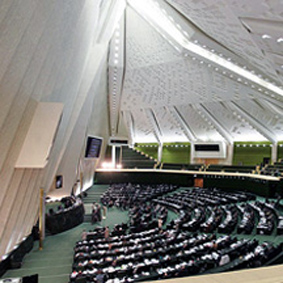Iran's parliament rejected on Sunday the government's request to withdraw a bill aimed at gradually cutting energy and food subsidies, state radio said.
President Mahmoud Ahmadinejad and parliament disagree over control of the money saved through the reform, Reuters reported.
The government wants to spend the money in any area it sees fit. But the assembly passed an amendment in November linking the proposed cut in subsidies to the budget and forced the government to put the money into a special account for public spending.
"The government requests the withdrawal of the subsidy reform bill," the government said in a letter to the assembly, the official IRNA news agency reported.
Ahmadinejad had previously threatened to kill the plan. But parliament sent the bill to the Guardian Council, a legislative watchdog body, for final approval to become a law.
Ahmadinejad, who still faces opposition protests six months after his re-election in June, wants to save up to $100 billion annually from subsidies on gasoline, natural gas, electricity, water, food, health and education.
Removing subsidies would ease a heavy budget burden and make Iran, a major oil producer, less vulnerable to any new U.N. sanctions on imports over Tehran's disputed nuclear energy program.
Critics believe the government's subsidy reform plan will hurt many ordinary Iranian people already struggling to cope with rising consumer prices. The official inflation rate stands around 15 percent.
"SERIOUS DEMAND"
MPs said they "seriously wanted the bill to be implemented."
"The withdrawal of the bill is unacceptable for MPs ... parliament has done a thorough technical examination before passing the bill," said conservative lawmaker Ahmad Tavakoli, a critic of Ahmadinejad's economic policy.
State media have said the government will open bank accounts for 36 million people, about half the population, to give them cash to compensate for the higher food and energy prices.
The country has been rocked by anti-government protests since the June vote, which the opposition says was rigged to give Ahmadinejad a second term.
The vote touched off the worst internal crisis in the Islamic Republic's 30-year history. The government denied any fraud in the voting.
Iran, which may face tougher international sanctions in 2010, has set a one-month deadline for six powers to accept its uranium swap proposal.






